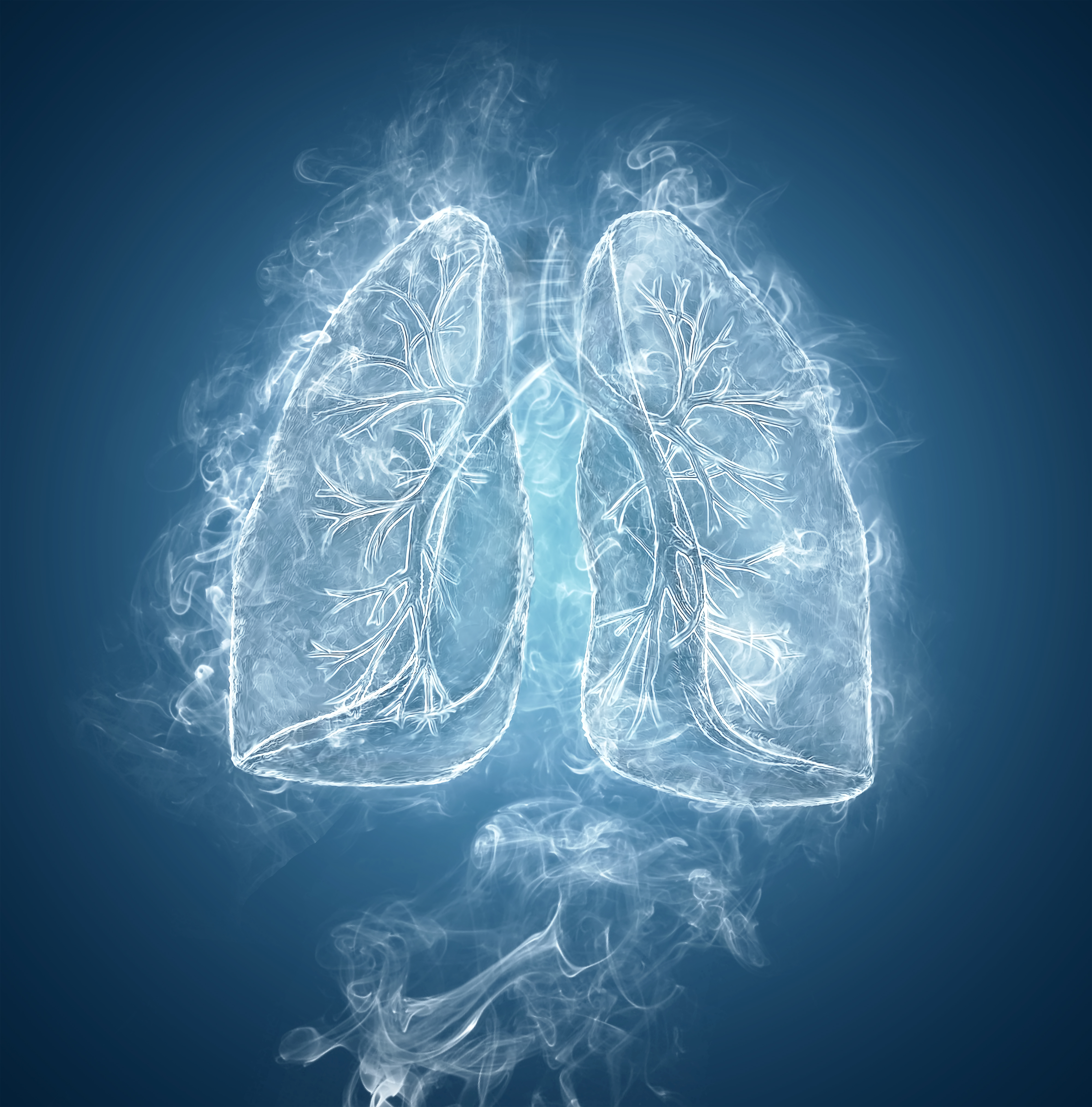Researchers at Yale University in Connecticut and Brown University in Rhode Island recently discovered that a particular protein called interleukin-15 (IL-15) plays a key role in the induction of lung damage caused by cigarette smoke and influenza virus infection (commonly known as the flu virus). The study was recently published in the American Journal of Respiratory Cell Molecular Biology and is entitled “Interleukin-15 Regulates Retinoic Acid Receptor Beta in the Lung During Cigarette Smoking and Influenza Virus Infection.”
It is well-known that cigarette smoke has detrimental effects for the lungs, however, only 10 to 20% of the long-term smokers are estimated to eventually develop serious medical conditions that compromise breathing such as chronic obstructive pulmonary disease (COPD), including emphysema.
COPD is one of the most common lung diseases and a major cause of morbidity and mortality worldwide, being the third leading cause of death in the United States alone. It is a progressive disease characterized by obstruction of the airways, shortness of breath (dyspnea) and acute exacerbations. Smoking is considered to be the leading cause of COPD. Emphysema is one of several disorders known collectively as COPD. In emphysema, the alveoli of the lungs are irreversibly damaged, creating one larger air space instead of many small ones, reducing the surface area of the lungs and, consequently, the amount of oxygen that reaches the bloodstream.
Viral infections are usually more severe in COPD patients and they can further impair lung function in these patients. The protein IL-15 is a cytokine that is involved in antiviral immune responses by inducing natural killer cells — cells of the immune system that are able to destroy virally infected cells.
Researchers have now analyzed the mechanisms that promote the decline in lung health with a special focus on the role of retinoic acid, a metabolite of vitamin A (retinol) that is known to have a key role in lung tissue development, maintenance and repair. The team also assessed the possible link between retinoic acid and IL-15.
[adrotate group=”3″]
Using mice models, researchers found that both long-term exposure to cigarette smoke and influenza virus infection decrease retinoic acid signaling by induction of IL-15, which in turn, significantly attenuates a retinoic acid receptor called retinoic acid receptor beta (RAR-beta). The team also reported that RAR-beta can be further attenuated by a combination of the two factors, viral infection and cigarette smoking exposure. In the absence of IL-15, RAR-beta expression is increased.
Researchers concluded that retinoic acid signaling is significantly decreased in mice lungs due to cigarette smoke exposure and influenza virus infection. IL-15 specifically decreases RAR-beta expression and restoration of the protective function of retinoic acid could represent a potential new therapeutic strategy to decrease lung injury in patients with emphysema and COPD.

